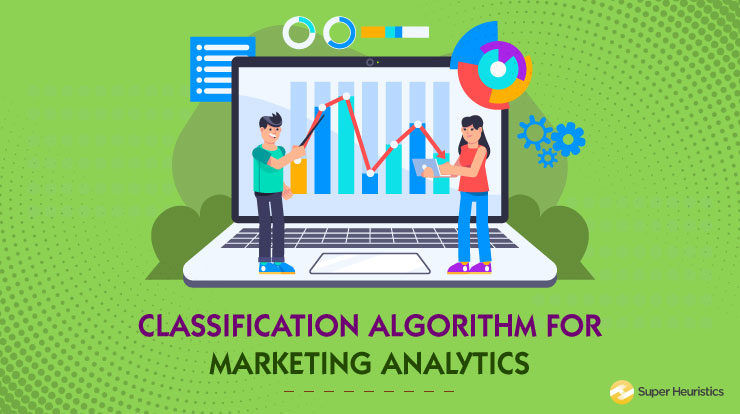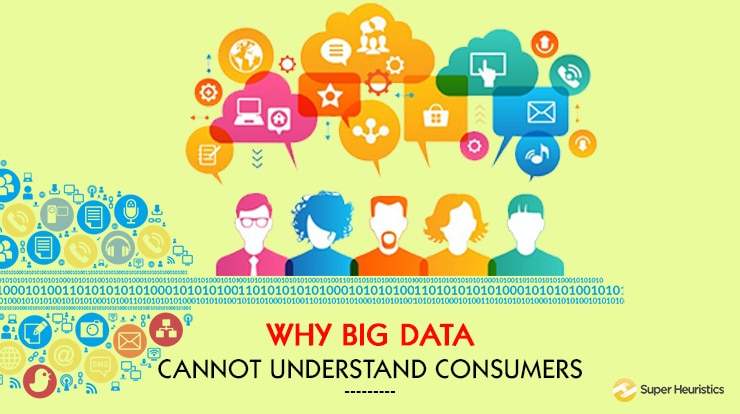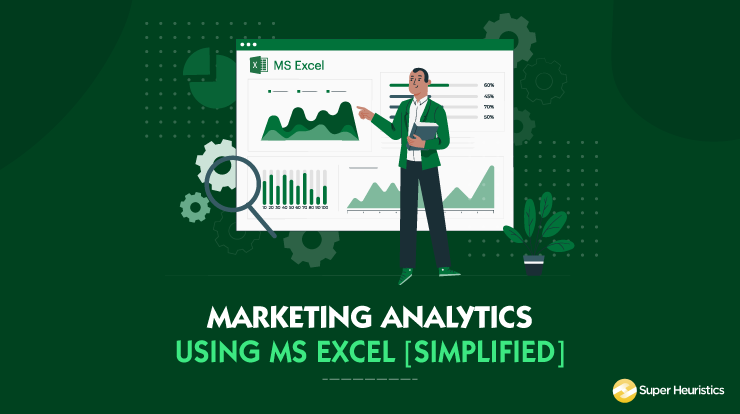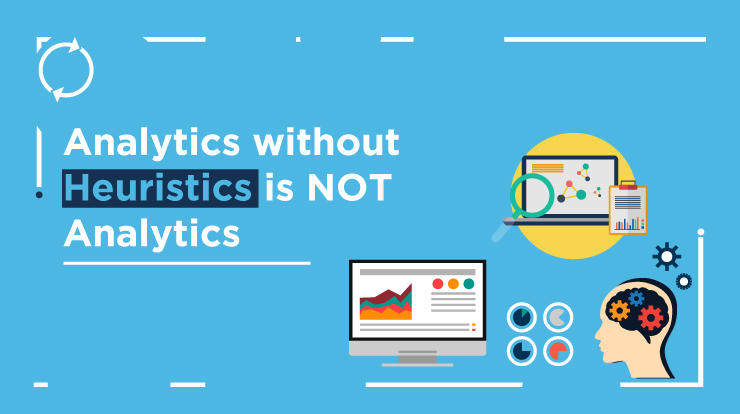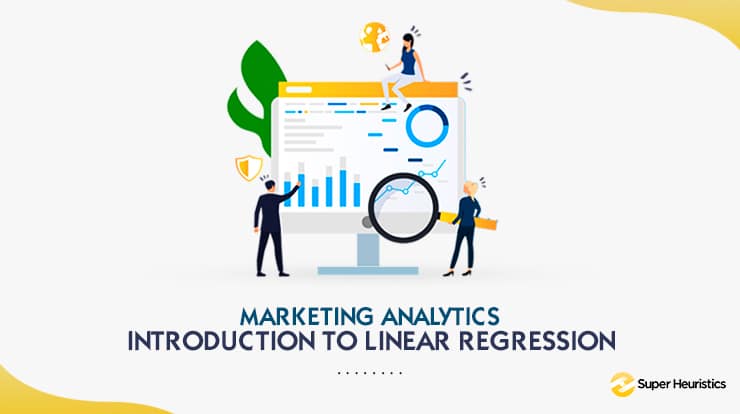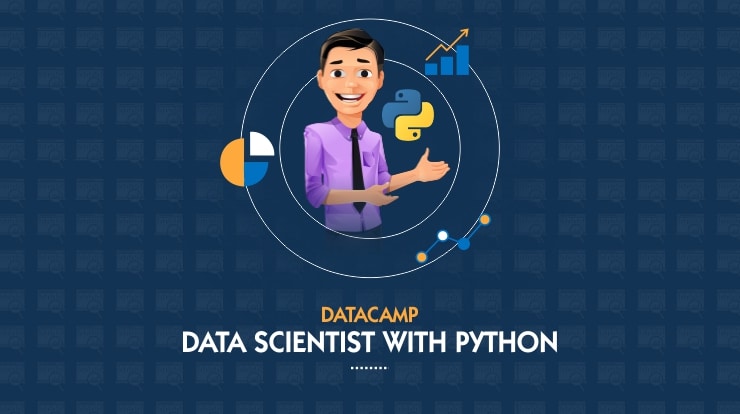
Statistics, analytics, and marketing are the backbone of an MBA degree. Whether it’s a consulting or a profile at an investment bank or a tech-savvy role at a new startup, being data-savvy is becoming a key requirement. More and more marketing enthusiasts are waking up to the fact that they need Data Science to make bring about marketing efficiencies in this super competitive work.
In this discussion, I will share with you a structured method of actually becoming a Data Scientist with Python as your language. You obviously require a good online resource to do so. And therefore, I have picked up DataCamp’s Data Scientist with Python career track as the basis of this journey of yours towards learning Data Science.
For those of you, who are on the fence currently thinking about how to learn Data Science and where to learn it from, this will serve as a good Data Scientist with Python DataCamp Review. I want to show how you can get started the right way.
For those of you, who are already learning Data Science, I have a special gift that I will share with you during the course of this discussion. It is a detailed study plan for learning Data Science along with many extra resources recommended in it.
Before you read further! Create a FREE DataCamp Account
Not many know that a few of the DataCamp courses are available for free! This way you can start learning Data Science with DataCamp right away without having to pay anything. Therefore, go and create a free account and then come back to explore your account with me.
Why you haven’t been able to learn Data Science yet?
I know that you are stuck. You have given it a deep thought often number of times and have even started learning. But the fact is that you have not reached anywhere.
I can feel you completely. I have been at this situation when I was learning Data Science during my MBA. Moreover, so many of my friends, juniors and readers of this blog have shared with me their reasons of why they aren’t able to make it as a Data Scientist yet.
Let me tell you that there are just 2 reasons why you haven’t become a master at Data Science yet despite all the want and desperation in you. Either of these two reasons could be valid for you:
- Your learning is unstructured
- Don’t do incremental practice
Here the thing. Most of us who begin learning Data Science end up being extremely unstructured in this process. Either we don’t commit ourselves to one learning resource (a course or a book) and start scrambling across different resources. Or, we don’t take up any structured learning resource at all and end up learning in bits in pieces through YouTube or different blogs.
The later is often wrongly termed as ‘self-learning’ or even ‘hustling’. But the fact is, such a pursuit of learning through self-assimilating all the resources and create a curriculum for ourselves requires some preliminary knowledge and lots and lots of self-discipline.
And obviously, most of us lack both.
Therefore, trick number one to master anything new is – follow a curriculum!
The second reason of why you have not been able to make any progress in learning Data Science till now – there is no incremental learning happening. And therefore, there is no progress.
The problem is that we often mistake movement for progress. When we take up and online course and start watching the videos, we take comfort in the progress bar up there which tells us that how much percentage of the course we have completed.
Heck, I have seen myself just look at the progress bar instead of the actual video specially in the last few seconds of the video when that progress bar gets updated.
And that is the problem right there. You watch the videos just to complete the course. You hardly ever pause the video to try and coding out that problem yourself. Do you?
That’s where the second trick to master something comes in – do incremental learning by practicing what you are learning instead of just watching videos.
And while we are at it, let me just address that one doubt which would have sprung in your mind right now.
Is the problem with Online Courses or with your Motivation?
I would say its both. Most Data Science and Marketing courses out there are only videos. And I have nothing against these courses. Some of these are the best courses which I took and I owe so much to them.
But then you need practice. And if you are not self-motivated to pause the video and practice it out, absolutely no course can help you.
Then, what is the solution?
The solution is that either you build in that self-motivation to practice diligently or you take up a course that makes you practice!
And that is where DataCamp comes in. A course pedagogy in which you can't proceed towards the next lesson until and unless you have coded out that problem in their in-built editor.
Let me tell you more.
DataCamp has been at the hot-seat for knowledge related to Data Science, and several programming languages. As an MBA student or graduate, you’re already one step closer to acing in Data Science, mainly due to exposure to Statistics and Analytics. But there’s more.
If you wish to check out my in-depth review of DataCamp as a whole, you can give it a view.
To strive for that data-savvy leadership or entry role, you’ll have to have some experience with programming languages. Python and R are the leaders when it comes to being the best – you’re welcome to choose either one. DataCamp’s Python track is by far the best plan laid out for anyone getting started with Data Science and we’ll discuss that soon.
To aid you guys in your studies, I’ve written a detailed study plan for covering the Data Scientist with Python Career Track over at DataCamp – give it a look as it can help you relate to everything you learn and manage your studies efficiently!
First, let’s brush-up on what DataCamp is and then continue with our review!
DataCamp Review: What’s It About
DataCamp is an online, self-paced learning platform with focus on Data Science and programming languages like R, Python, and SQL, which can aid in analysis. The platform hosts over 5,890,000 aspiring data scientists and continues to grow in numbers due to positive feedback from users.
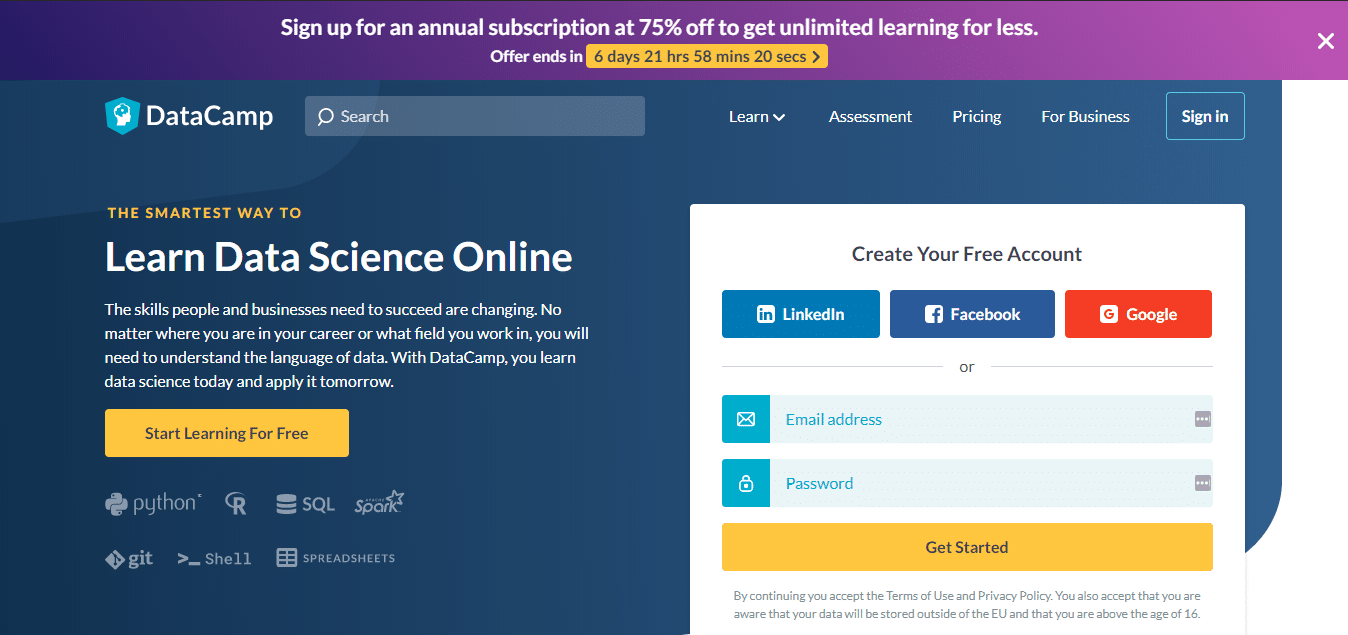
DataCamp was co-founded in 2014 by Jonathan Cornelissen with the aim to launch a completely data-intensive education platform. Since then, they’ve grown in the number of quality instructors, offer engaging coursework, and provide real-time feedback to students for their growth.
Just to motivate you a bit if you’re thinking about whether Data Science is made for you or not – most of the instructors at DataCamp are actually MBA graduates. Just as an example, Chris Moffitt, who’s the creator of the Practical Business Python is actually an MBA! You can definitely do this with a little help and I’ll help you get there via our DataCamp review.

Currently, they have 900+ courses, projects, and exercises for students to indulge in. Apart from the 300+ courses, you can practically assess your learning by attempting the challenging questions. This can help reinforce some of the theoretical knowledge.
Out of those 900 courses, I’ll specifically be covering the Data Scientist with Python Career Track and all courses that fall under it.
DataCamp Python or R Career Track: Which One’s for Me?
Although I’ve talked about this in the past but you’ll likely be thinking about it as well – R or Python, which one do I choose?
Quite frankly, they’re both powerful high-level languages with an easy-to-go syntax. Learning them won’t be an issue but you should be thinking about how a particular language can help you out. R is strictly statistics, which is a definite plus for an MBA student. Python, on the other hand, is quite diverse and versatile, which opens new areas for you to explore.
You can use APIs, access websites, perform analytics, draw plots, and what not on Python. Though a subset of it is available on R as well, Python’s the real-deal. Not to mention – in a technical role, if you’re ever asked to interact with databases, Python provides comfortable support for SQL and Databases too!
Though I’ll emphasize this again – if you’ve already practiced with a language before, you’re good to go and need not worry. If you haven’t, DataCamp career track review’s next in-line so you can get a good idea as to why Python’s the best fit for you!
DataCamp Career Track Review: Structured Learning
As a newbie Data Scientist – you won’t be having much insight into what the courses hold for you. Secondly, jumping straight into the courses can be a waste of time. Luckily, DataCamp provides an easier option by grouping courses into Career Tracks.

As of now, DataCamp has over 13 career tracks which are vetted by their expert instructors. Some of those include:
- Data Scientist
- Data Analyst
- Statistician
- Machine Learning Engineer
These career tracks are especially designed to give you an edge over your co-workers and show your passion for business leadership roles. If you’re not interested in getting started from the top, you can also make use of their skill tracks which are excellent at specific technologies. For example, you can pick courses for Python, R, SQL, or even Statistical modelling – and they’ve got those.
Thirdly, you’re free to choose courses if you’re aware of the plan you have to follow. The career tracks comprise of these short courses as well.
My detailed study plan for the Data Scientist with Python Career Track can help you choose individual courses which are particularly useful for you as an MBA student or aspirant – I’ve added in percentages to help you uncover how much you’ve gone through, so you’re never lost and can easily continue with the detailed guidelines. Check it out!
Let’s finally move to the topic under discussion – Data Scientist with Python DataCamp Review!
Data Scientist with Python DataCamp Review
Decision making skills are considered to be the core of an MBA. Thing is, this decision making will quickly grow out of hands if you don’t consider computers your allies. In this day and age of Big Data, there’s tremendous amounts of knowledge laying around to be used.
That’s precisely where the Data Scientist with Python career track will help you pick this data and extract meaningful information out of it. This should help you impress executives and make decisions which are purely data-driven rather than mere conceptions.
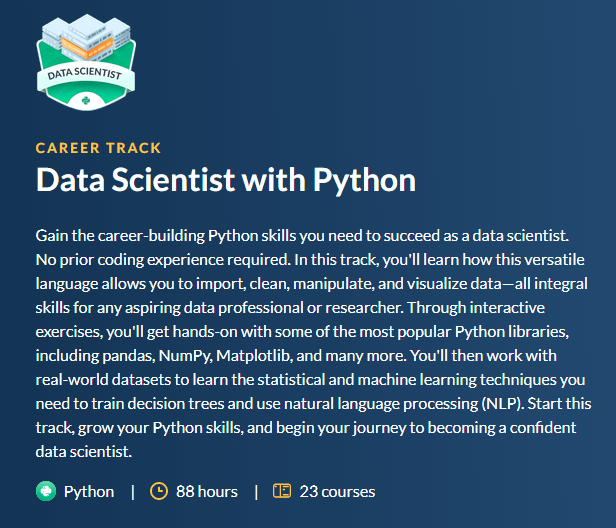
If you’ve been wondering about “how to become data scientist with Python”, this is the best answer to it. This career track comprises of 23 courses (out of the 300+ courses we discussed before).
How long does it take to complete the DataCamp Data Scientist track in Python? 88 hours as the website suggests. Though this is the complete time for the videos, practice, and the exercises. It’s timed for people of all experience so you can get through it in a much lesser time if you feel comfortable with the lessons.
As starters, of course, DataCamp python courses are merely introductions to the language itself. The Introduction to Python DataCamp course will get you started with the programming language as you gradually improve and learn advanced concepts.
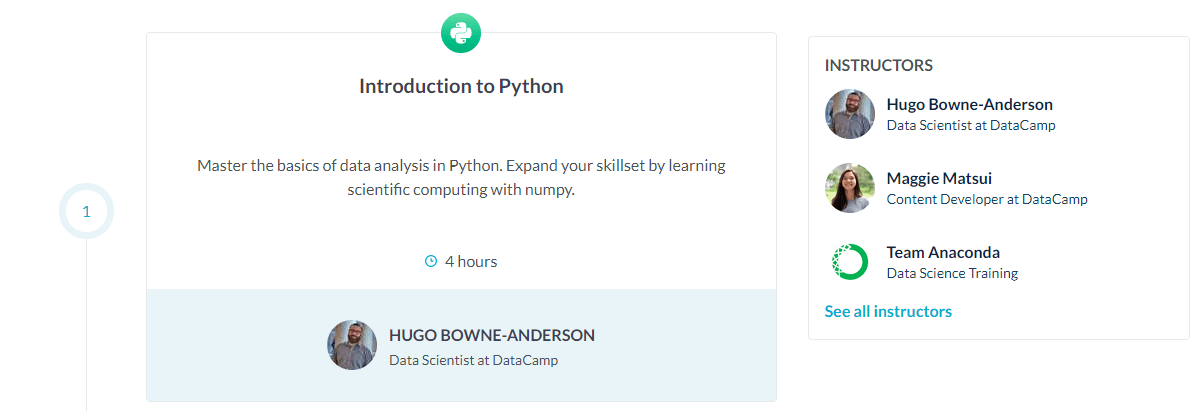
After an introduction, you’ll quickly hop to intermediate Python and soon off to operating on Data itself using Pandas. The key takeaway here is – you won’t be jumping around just learning the language. Rather, you’ll focus on the practical concepts you need to have as an MBA in 2020.
Introduction to Python DataCamp Course Review
Let’s hop into the “Introduction to Python” course to see what’s the content like in there.
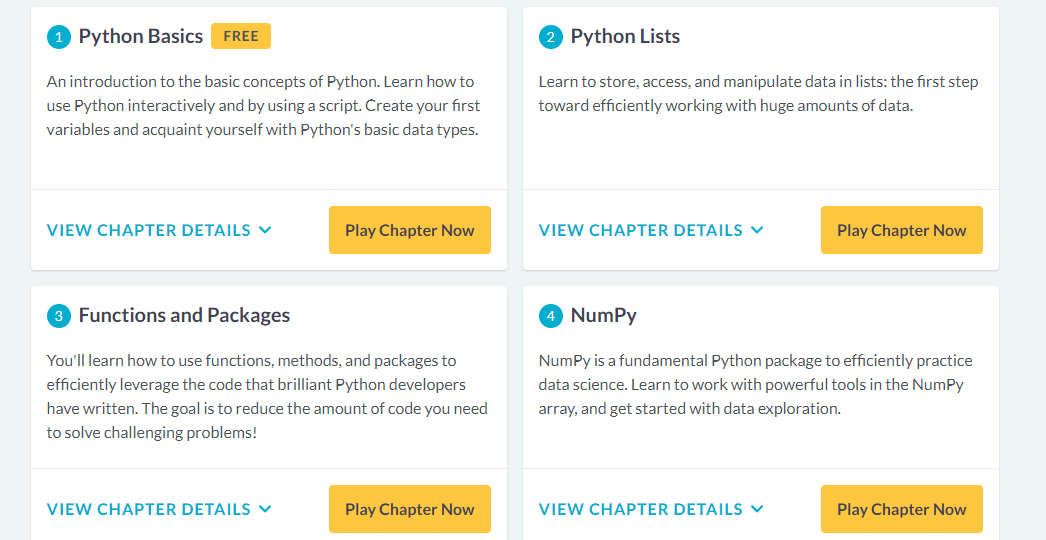
Since I’ve already taken these courses, I know this is the basic section of the language. You’re introduced to writing your own code so you can get started. I’ll show you the way around the first chapter by quickly signing in to my account.
Firstly, there’s a simple way to check the course outline at all times and map your progress.
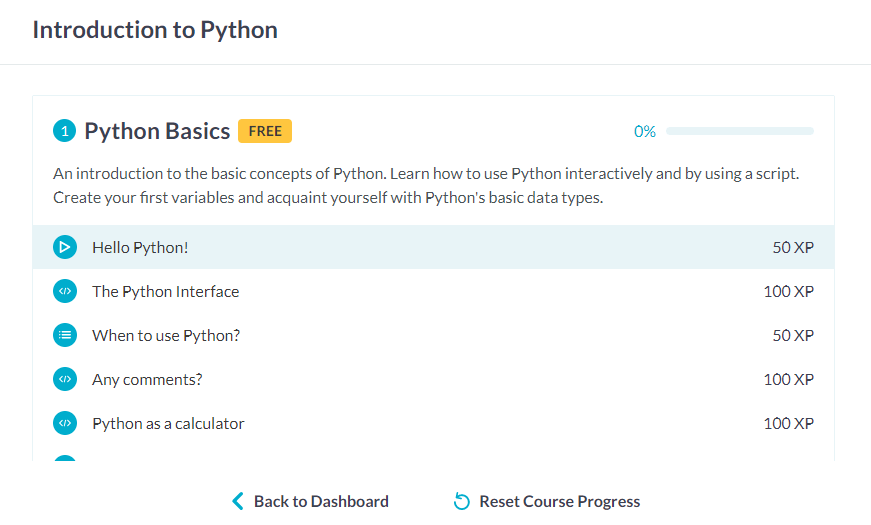
Secondly, the grading system using XP or experience points is pretty good. The feeling of a reward alongside learning makes a huge impact!
Here’s the first video for “Hello Python” in which Hugo, the instructor, is briefing over the course. The clean UI’s with easy to access information for the learning materials is a good feature.
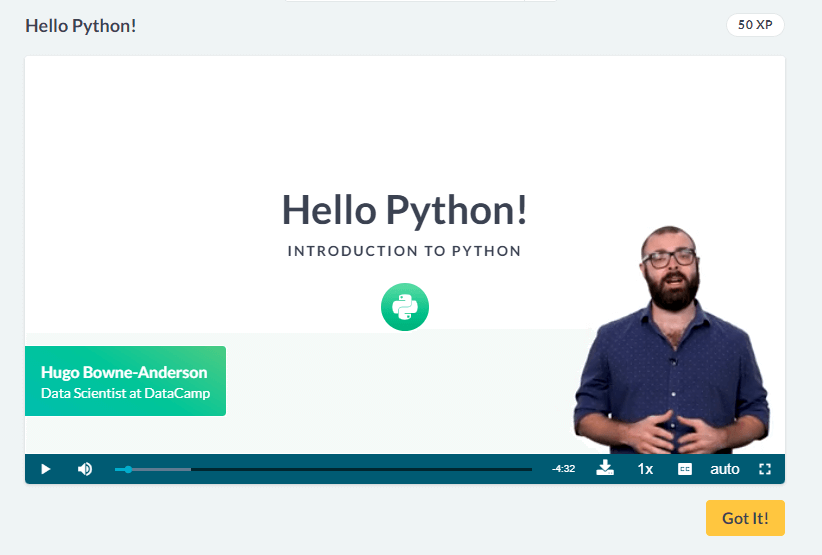
Once you hop on to the next section, you’re off to practicing via coding! What better way than to start off with code?
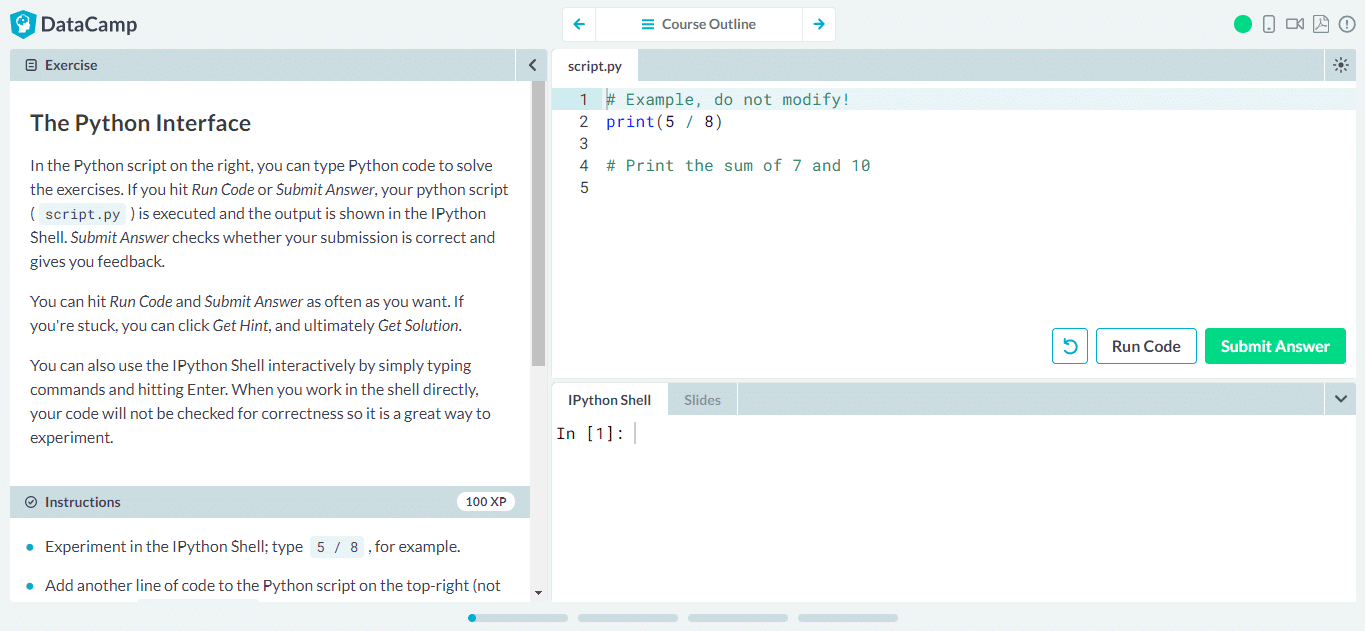
Manually setting up the coding environment is quite hectic. Luckily, DataCamp provides an excellent in-built coding environment for you to practice your concepts. The instructions are on the left, and the output for the code is displayed on the bottom right – this separation is one of their most unique features!
You can also take part in the project, assessments, and perform practice tasks to check your progress. These projects have loads of data for you to visualize, analyze, and play around with. It’s ideal that you go through these as well to improve your analysis skills.
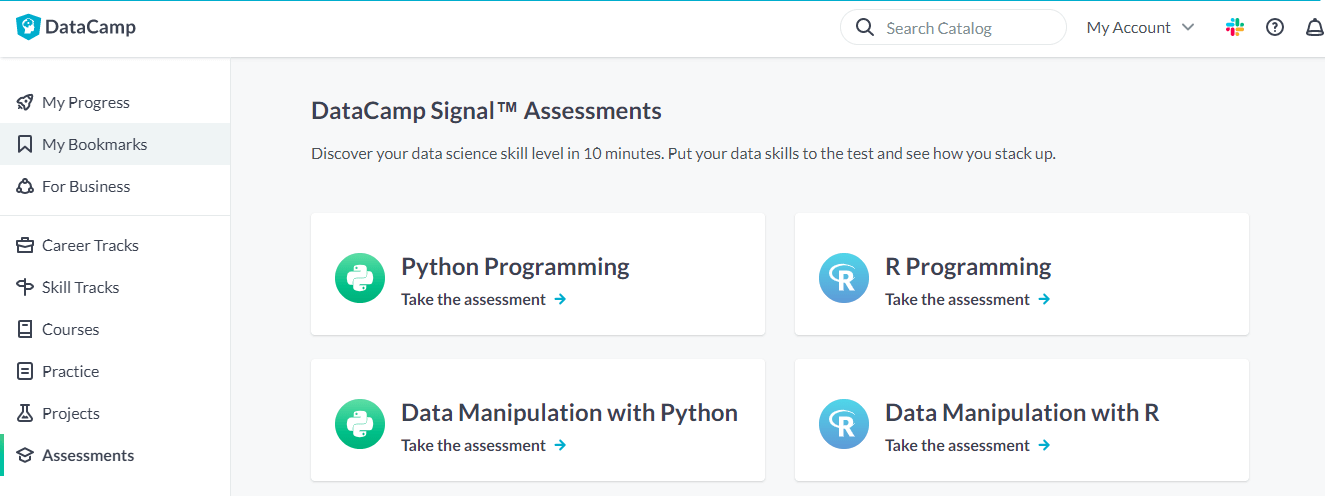
DataCamp Python Course Review: Moving Forward
As you quickly move past the basics, the next few sections are really focused on Data Science. For example, using NumPy, Pandas, and others for playing around with datasets (which DataCamp also provides) is the core of the field.
The Data Scientist with Python Track contains 23 such courses. Like we’ve discussed the first one, you’ll quickly enhance your skills and be working on real-world datasets in no time. Here’s a short overview of what you’ll be learning in some of the other courses:
- Python isn’t just about the basics. Dive deep into its complexities with the “Intermediate Python” course
- Pandas is an essential tool for every Data Scientist. Learn how to play around with it and operate on some data to learn each concept.
- Matplotlib and Seaborn are excellent libraries to plot and visualize your data to help the higher executives decide on something (something you’ll love doing)
- Python for Data Science is totally different from vanilla python. See what tools you have and how you can make use of it to save your precious time while working on data
- Statistical thinking will help you think statistically and enhance your skills in statistical inferences
- Machine Learning is also a key part of this course as you’ll learn more about supervised and unsupervised algorithms and how they make up most of what we call, Artificial Intelligence.
- And so much more!
Now, the question arises…
How Good is DataCamp for Python?
Like I said before, DataCamp’s python coverage starts off from a completely layman point of view. They grow on to add more and more to that, and this includes complex concepts like lambda functions and classes.
The videos and instructions are quite well-defined so you won’t have an issue going through the exercises. Even the exercises are challenging and cover aspects of the concepts you’ve just studied. Though there’s one small shortcoming with them – the code is partially written out for you.
As a newbie, you’ll find it hard to write code on your own once you’ve seen it written in the environment for yourself. Though you can quickly get past this issue by practicing python problems and exercises on your own. Remove the code from the environment and you can write your own piece to get started and learn the hard way.
Luckily, Datacamp python courses are also accompanied by projects. You can complete those to test your knowledge, and go back to the learning material if you feel you’ve lacked in a particular topic. After a subscription, the courses are available to you for review.
Other Mentionable Tracks: Data Engineer with Python
My Data Scientist with Python DataCamp review won’t be complete without mentioning contenders. Data Engineer with Python, is yet another challenging career track for MBA students like yourselves who’re looking forward to playing around with data.
As businesses and companies are hoarding data, there’ll soon be a huge demand for Data Engineers to extract information from it. Having this skillset under your belt along with an MBA degree makes you a complete powerhouse!
Give the track and its courses a look. Though I’d suggest going over this track once you’ve completed the Data Scientist with Python track since this one requires basic knowledge of Python and SQL.
DataCamp Review: Premium Subscription
DataCamp’s quality learning material requires you to get a premium subscription. Only a few courses, exercises, and projects are available for you to attempt under the free trial. After that, you’ll be required to make a purchase.
Luckily for you, the DataCamp python career track won’t cost you much these days if you act fast.
This makes the final price of purchasing the content (for a year!) for 99$ only. Otherwise, the price for subscribing to their content on a monthly basis cost over 49$. It’s clear enough – the annual subscription is a great deal and can be quite beneficial for you over the next year as you quickly grow as a Data Scientist!
Conclusion
To conclude, I’ll present a short table of pros and cons for DataCamp’s python course. Here’s it:
Pros
Cons
Conclusion:
DataCamp is a good learning platform for aspiring data scientists, MBA graduates, as well as marketing students. The skill is definitely a must-have for all MBA students in this day and age. You’ll also have a good advantage over your colleagues with this skill under your belt, along with more options to move into other domains.
That’s it for this Data Scientist with Python DataCamp review guys. I hope this career track serves as the perfect introduction for you to the emerging field of Data Science!

